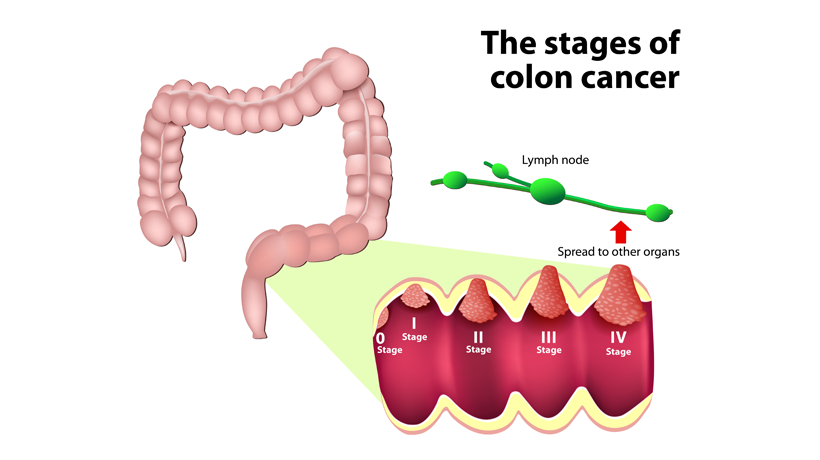Colon cancer is abnormal cell growth in the large intestine (the colon)—the final part of the digestive tract. It’s the third most common type of cancer in the United States, as well as the third most widespread cause of cancer-related death. Overall, the lifetime risk of developing colorectal cancer is about 1 in 24 (4.15 percent) women.
Most cases of colon cancer begin as small, benign clumps of cells called adenomatous polyps in the large intestine. Over time, some of these polyps can become colon cancers.
Studies have shown a link between Western diet—high in fat, low in fiber—and increased risk. It’s not clear why, but researchers are now studying whether these eating choices affect the microbes that live in the colon or cause inflammation that may contribute to a risk of developing cancer.
This makes it so important, especially in Western countries, to be well-informed about colon cancer. To learn more of the severe warning signs, apart from the more common reports of weakness and fatigue, read through our list below to discover the hidden dangers of the sweeping disease.
Severe bowel problems
People with colon cancer might experience a change in bowel habits, including diarrhea or constipation. Also common is a change in the consistency of stool, which lasts longer than four weeks. Additionally, patients have reported feeling that their bowels don’t completely empty, or that they have continual urges to defecate. In the most extreme cases, some people may develop irritable bowel syndrome—a chronic intestinal disorder that causes acute pain and disordered bowel movements.
Abnormal bleeding
A common symptom of colon cancer is rectal bleeding or blood in the stool. It might be bright red or make the stool appear darker than usual.
Abdominal pain
Most people report some form of persistent abdominal discomfort, including (but not limited to) cramps, gas and/or pain.
Weight loss
As is the case with other cancers, patients might encounter an unexplained, shocking drop in weight.
Anemia
Over time, the blood loss in the stools can add up and cause low red blood cell counts—a condition called anemia. In fact, sometimes the first sign of colon cancer is a blood test showing a low red blood cell count.
Polyps that can turn cancerous may be small, and can produce very few or no symptoms at all. For this reason, doctors recommend regular screenings to help prevent complications by finding and removing polyps before they become harmful. Talk to your doctor, especially if you’re over the age of 50, about getting tested for colon cancer.
Sources:
https://www.mayoclinic.org/diseases-conditions/colon-cancer/symptoms-causes/syc-20353669
https://www.medicalnewstoday.com/articles/150496.php
https://www.cancer.org/content/dam/CRC/PDF/Public/8604.00.pdf



